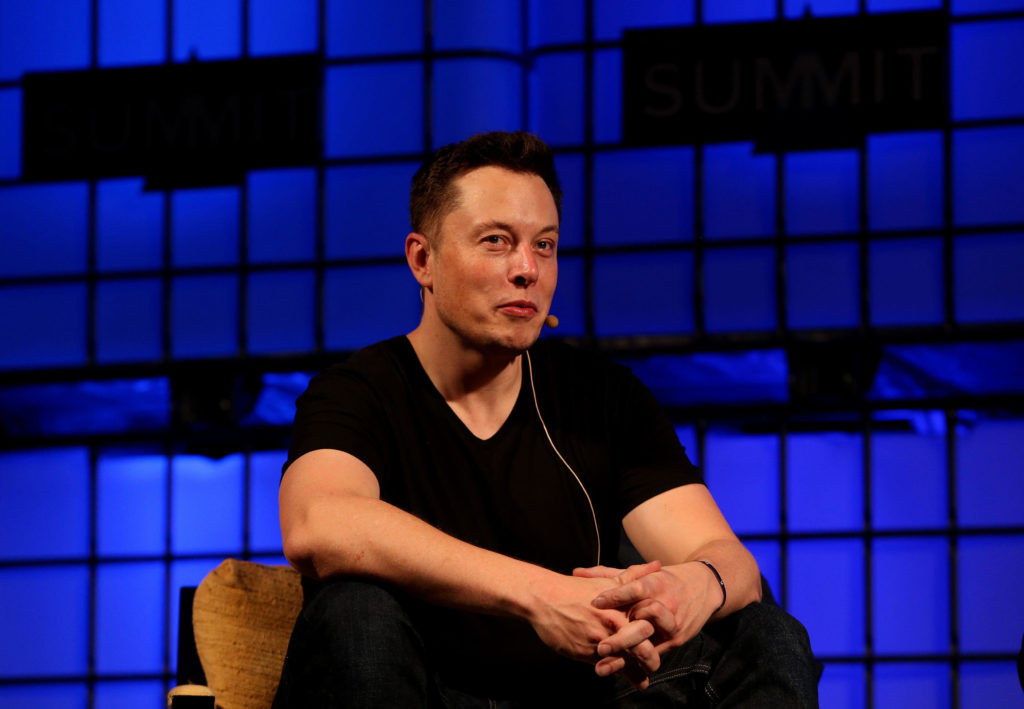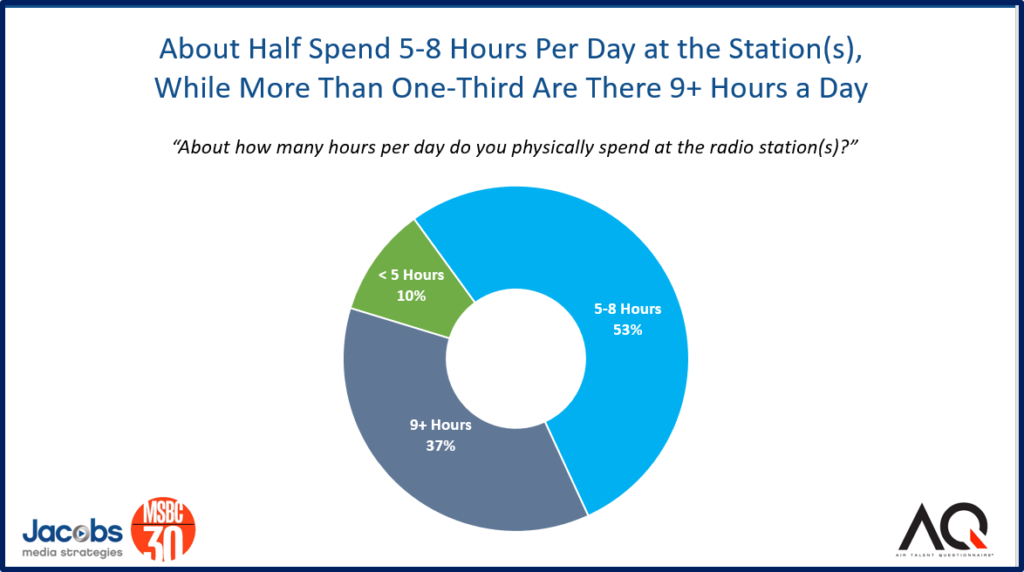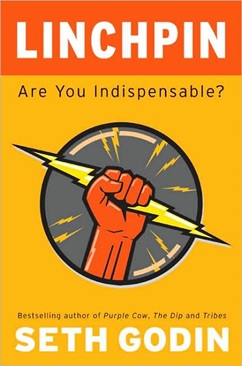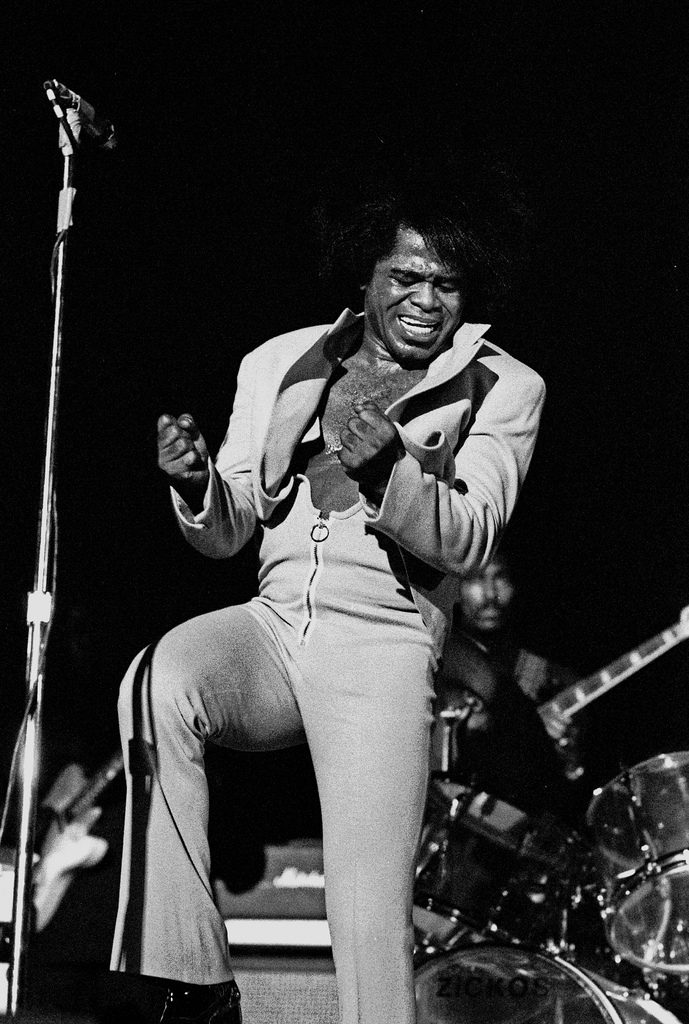
“You can’t change the world working 40 hours a week.” – Elon Musk
Well, it’s Friday, but joyous shouts of “TGIF” and sales teams running to the station hangout after lunch for a few cold ones just don’t seem to be happening in radio that much anymore.
That’s because it’s become a “given” that Elon Musk’s philosophy of long hours, passion, dedication, and focus have become der rigueur. That’s French for “required” or in other words, “the way it is.”
Back in a different era when I worked for ABC Radio, the airstaff worked standard four-hour shifts. We had six full-timers, and while they worked one weekend day as well (even the morning shows). But I can’t tell you that anyone on the air worked anything resembling an 8-hour day, because most did not.
That’s sure been remedied today. And while few are working Muskian 120-hour work weeks (yes, that’s what he put in order to keep his cutting edge companies running), no one’s working the old “4 and out the door.” In fact, Musk says most Tesla devotees put in 80-100-hour work weeks because you can’t “change the world” by doing anything less.
And in our AQ study, we asked the 1,100 airstaffers how much time they physically spend in the station on a typical workday.

Only a handful – one in ten – spends less than five hours a day in the station (and they could be part-timers). While a majority are in the 5-8 hours a day range, well more than one-third say they’re in the building 9 or more hours each day.
And that doesn’t account for prep time at home or station appearances throughout the week. A look at Facebook on any give day reveals that pretty much any radio personality serious about their careers, their jobs, and their stations isn’t slacking or mailing in these days.
This can be a particularly difficult time for radio’s rank-and-file as job cuts often take place as the fiscal year wraps up. As staff evaluations are being  made, I always think of Seth Godin’s “Linchpin,” the book for over-achievers in all walks of life. Seth’s contention is that by becoming that go-to staffer who volunteers for every and any job, and who has a highly diverse skill set, job security is…well, more secure.
made, I always think of Seth Godin’s “Linchpin,” the book for over-achievers in all walks of life. Seth’s contention is that by becoming that go-to staffer who volunteers for every and any job, and who has a highly diverse skill set, job security is…well, more secure.
But that kind of routine entails “Elon Hours” – or pretty close – in order to demonstrate value to the organization and the management team.
Nor are programmers or sales managers. Thanks to smartphones, management is available 24/7 because of email and text messages. As a PD, I used to carry around a pager (better know as a beeper) – my electronic tether. Today, grabbing the PDs attention is more efficient – often just a text away. And most competitive programmers want it that way.
And then there’s the weekends. Programmers in PPM markets spend some “fun time” every Sunday calculating meter counts as they gird for the next weekend. Going into holiday weekends, scheduling multiple music logs (often for multiple stations) is standard operating procedure. Sales managers are constantly reforecasting, staring at spreadsheets, calculating how to make their numbers.
I meet many broadcasters at state broadcaster association conferences who work several jobs across the cluster, especially in small markets. At that level, it’s not just a job – it’s a lifestyle.
But it’s radio’s new generation of CEOs and COOs that is setting the new tone in radio broadcasting companies as they attempt to morph into multi-media entertainment and information platforms. Talk to any of them, and you’re apt to hear about non-stop travel, their board positions, constant market visits, deal making, and problem solving – all of which can take place wherever whenever.
Author, podcaster, and speaker (no one has just one job title anymore) Malcolm Gladwell insisted in “Outliers” that expertise comes at a cost – a 10,000 hour commitment to truly become proficient at your craft. That’s a lot of time to devote to achieving expertise, but as Gladwell explains, “You need to have practiced, to have apprenticed, for 10,000 hours before you get good.”
While most radio broadcasters are passionate about their stations and their communities, they’ve also learned about the wisdom of building and managing their own brands. Celebrities of all stripes – especially in the worlds of entertainment, sports, politics – are hard at work, crafting their images, creating extensions, developing “side hustles,” and using the available social network and word-of-mouth avenues to keep their personas top-of-mind. These endeavors take time.
Back in the day, soul singer James Brown was known as “The Hardest Working Man In Show Business.” He played a lot of gigs, wore a lot of hats  (literally and figuratively), and easily produced a gallon of sweat each night on stage. Today, more performers across the spectrum are working at a similar pace to “The Godfather of Soul.” (Yes, James Brown was also an expert in branding and positioning.)
(literally and figuratively), and easily produced a gallon of sweat each night on stage. Today, more performers across the spectrum are working at a similar pace to “The Godfather of Soul.” (Yes, James Brown was also an expert in branding and positioning.)
That takes a lot of work. And whether you believe the economy is robust or a bubble about to burst, there’s consensus that hard work and many hours are simply required, whether you’re Ryan Seacrest or Screamin’ Scott.
Many believe that Elon Musk has been on the personal and professional brink at various times this year as Tesla has teetered and those long hours have taken their toll.
But he perseveres, based on hard work, and the mantra that has spread throughout his companies. As he works even longer hours than his employees, Musk is setting his company’s tone. He readily admits that his regimen is not for everyone.
The term “slacker” was very much a 90s thing. But in actuality, it was originated back in the late 1700s when Sudanese workers protested their powerlessness by slowing down the pace.
You’re hard-pressed to think of many successful slackers today. It’s not only undesirable – it has proved to be an outmoded work mindset that simply has no place in today’s hyper-speed, 5G environment.
There’s certainly no room for it in radio.
We’ve got a job to do.
- What’s Your Radio Station’s “TUDUM?” - February 3, 2025
- Appreciating What We Have (When Our Lives Aren’t In Jeopardy) - January 30, 2025
- AI: Oh, The Humanity! - January 29, 2025




Every second a radio programmer spends outside the station makes them better than the one who spends time in a station.
Perespective is everything, Walter. It’s why we encourage broadcasters to attend at least one conference per year that has NOTHING to do with radio. Thanks for the comment.
Fred, for years I’ve told employees that this was a job that required a half day….12 hours and on occasion I would ask the for a full day. Following is a sales memo I wrote that talks about what I mean…
If you’ve known me for any length of time, you’ve probably heard me say that all I ask of each of our employees is that they put in a half day’s work. Of course, my interpretation of a half day is 12 hours… but you get to pick which 12! On occasion, it might be necessary, though, to put in a full day….
By the time the holidays arrive, I’m sure most everyone feels that they’ve put in an unusual number of full days. So, since most of you won’t be working on either Thanksgiving Day, or the day after, I’d like you to think about how you can spend time with your families relaxing, and still put in that half day. Here’s what you should be doing…
As you head out on Friday, typically the busiest shopping day of the year, keep an eye on what you see around you at different stores. Regardless of your position at the station, you need to make note, a mental note will do, of the traffic in those stores. On Monday, you can take that information and make sure that one of our sellers knows from your observations, what kind of approach to use when “selling” these businesses… whether to tell them that, “Since your business was so good on Black Friday, you should be inviting even more people into your store between now and Christmas to ensure a successful holiday season.” Or if traffic was slow, to tell those business owners, “Wouldn’t you like to find a way to help boost sales during this holiday season? We can invite customers into your store and help your business grow.”
Either way, you or the sellers with whom you share your “research” will be better informed and better able to talk to business owners about what is really happening in their world and, most of all, how you can help them maximize crucial holiday sales.
By the way, have a great Thanksgiving Holiday with your family!!!!!
Ira, thanks for the prescient comment and perspective. It is very much a product of your mindset – seeing opportunities in the everyday patterns of consumer shopping, spending, and even getting from Point A to Point B. It IS very much an entrepreneur’s mentality – one that Musk is trying to imbue in his people. There’s a ton to be learned from some non-traditional places and people if you’re smart enough and open enough to connect a few dots. Thanks again for your thoughts & best wishes to you and yours this holiday season.
This kind of attitude might make one successful but it sure isn’t healthy. If the cost of success is working yourself to death and never being able to relax with your family then I don’t want it. I work plenty hard and do what’s necessary but the idea of working 12 hours a day is about as ridiculous to me as the 4 and the door concept. I think what our industry needs is perspective about what truly matters.
A little balance is in order. At least I keep telling myself that. Thanks for the comment, Mike. Now back to work!
There is no doubt that hard work wins out but I would suggest Mr. Musk give us another type of lesson as well. The creative innovator and entrepreneur is not always the best person to run the company or take it to the next level.
Mr. Musk’s 100 hour work week has allowed him to imagine creative solutions in multiple industries but most are not coming to fruition because of his lack of delegation to subordinates to run the day to day basics. While it is amazing to take that many orders for vehicles, they will not get fulfilled by producing two a day. Spending some of those hours hiring someone who specializes in manufacturing would do him good. Recruitment is one of the functions that should take up a good portion of any executive’s time. He seems to be a micromanager who wants his hand in everything.
In radio, the parallel is like having our talented and creative morning show host also running the sales effort and do the billing.
I heard Sarah Blakley, the creator of Spanx, say something profound in an interview. When she started the company with very little money she did everything. As it grew bigger, she said her main priority was to “hire for her weaknesses”. She is not only a visionary, but she sits runs a very successful company.
Mr. Musk would do well to follow her lead. Then he can brag about how hard his people work for him.
Mike, this is a good perspective. I have long been a proponent of hiring to my weakness with Jacobs Media – one of the man reasons we have a big staff. 🙂 Thanks for the comment.